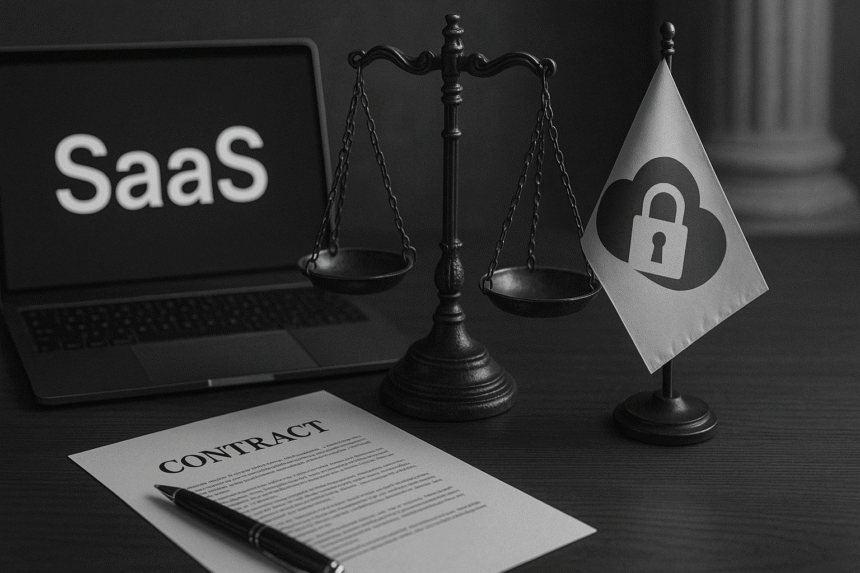What I Learned in My First Year Offering SaaS Legal Services
Starting something new is always a mix of excitement and uncertainty. When I began offering SaaS legal services, I quickly realized that this niche comes with its own unique challenges and lessons. After one year of working with tech founders, developers, and investors, I can confidently say that understanding how to deliver SaaS legal services requires a specific mindset, legal skill set, and business awareness.
In this post, I’ll share the most important lessons I’ve learned so far—from handling subscription contracts and IP protections to navigating billing models and client expectations. If you’re a lawyer entering this space or a SaaS company looking to understand how legal support should be delivered, this guide is for you.
Lesson 1: Understand the Core SaaS Contract Types
Unlike traditional businesses, SaaS companies rely on recurring revenue and digital delivery. This changes how contracts are drafted and negotiated. The most common SaaS contracts I’ve worked on as part of providing SaaS legal services include:
- Master Service Agreements (MSAs): Outline license rights, payment terms, and termination.
- Subscription Agreements: Detail service levels, pricing, and user limits.
- Service Level Agreements (SLAs): Define uptime guarantees and support obligations.
- End User License Agreements (EULAs): Govern individual use of software.
Delivering SaaS legal services taught me that clarity is everything—especially around scope of service and provider flexibility.
Lesson 2: Data Protection Is Not Optional
Data privacy is one of the most pressing concerns in SaaS legal services. SaaS providers manage vast amounts of personal and usage data, which subjects them to multiple privacy regimes. I frequently help clients draft or review:
- GDPR clauses for EU compliance
- CCPA disclosures for U.S.-based users
- Data Processing Agreements (DPAs)
- Cross-border transfer language, including SCCs
Whether onboarding enterprise clients or launching globally, privacy is a major part of SaaS legal services.
Lesson 3: Subscription Terms and Renewals Must Be Precise
One of the biggest pitfalls I’ve encountered in SaaS legal services is vague or aggressive auto-renewal language. These provisions can increase churn risk and even create legal exposure. Here’s what I consistently recommend:
- Clear and conspicuous notice of renewal clauses
- Straightforward cancellation procedures
- Compliance with jurisdictional notice requirements
Failing to tailor these terms can turn a strong revenue model into a legal liability.
Lesson 4: Adapt Communication to Non-Legal Audiences
A big lesson from my SaaS legal services journey has been adjusting how I communicate. Often, you’re working directly with founders, developers, or ops leads—not legal teams.
To build rapport and effectiveness, I:
- Avoid jargon and focus on actionable advice
- Collaborate through tools like Notion or Slack
- Take time to understand the client’s platform and user flow
Providing SaaS legal services means being a legal translator, not just a legal technician.
Lesson 5: Align Your Billing With SaaS Business Models
Understanding SaaS economics is crucial to delivering relevant SaaS legal services. Founders are accustomed to predictability, automation, and ROI tracking. I’ve shifted my approach to:
- Offer flat-rate packages for standard services
- Create bundles that include MSAs, privacy policies, and SLAs
- Deliver pre-vetted templates for early-stage founders
This model of SaaS legal services mirrors the scalability and clarity founders expect in every other area of their business.
Lesson 6: Proactivity Builds Trust and Loyalty
Clients value when their lawyer spots issues before they happen. That’s why proactive reviews, template audits, and regular check-ins have become core to my SaaS legal services offering. This helps me move from service provider to trusted advisor.
Whether reviewing product terms or preparing for a VC diligence round, being present before the crisis makes all the difference.
Conclusion
Offering SaaS legal services has been one of the most exciting transitions of my legal career. It’s a field that blends innovation, regulatory complexity, and rapid client growth. From mastering contracts and compliance to adapting your billing and communication style, every part of delivering SaaS legal services requires intentionality.
If you’re a lawyer exploring this space, start by listening—to the product, to the team, and to the business model. And if you’re a SaaS founder, know that legal support designed for your model will do more than protect you—it’ll empower your growth.



Leave a Reply